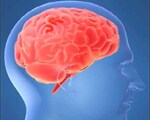A new study provides yet more evidence that keeping your brain active for fun can keep dementia at bay.

A new study provides yet more evidence that keeping your brain active for fun can keep dementia at bay.
Dementia is a cognitive impairment affecting memory, thought and behaviour. It may result from a static or progressive brain injury, resulting in long-term decline in cognitive function due to damage or disease in the body beyond what might be expected from normal aging.
Past studies have shown that people with more years of education who developed dementia did so later than less educated individuals. However, dementia was related to cognitive activity not the education. Therefore, researchers from America studied 101 adults who developed dementia between the ages of 75 and 85 years to determine the efficacy of cognitively stimulating activities and early life education in delaying the onset of memory decline in preclinical stages of dementia.
All the participants reported their years of formal education at the study's outset, as well as how often each week they read, wrote, did crossword puzzles, played board or card games, participated in group discussions, or played music. A person scored 1 for each day that they did each activity. The study participants, all of whom were dementia free at the beginning of the study, underwent cognitive testing every 12 to 18 months.
It was found that every day per week that a person engaged in one of six mentally stimulating leisure activities delayed the onset of dementia by about two months. The higher a person's score on the activity scale, the later the onset of accelerated mental decline. For example, a person in the top 25 percent based on their activity scale, who engaged in 11 activity days a week, started their accelerated decline a year later, on average, than a person in the bottom 25 percent, with four activity days a week.
But once that decline began, it happened faster in people with higher activity scores.
The findings support the idea of cognitive reserve, which is the theory that education and brain exercise builds extra capacity into the brain so it can better handle the damage to neurons caused by Alzheimer's disease. But once that damage reaches a certain point, a person will develop dementia.
The researchers concluded that cognitive stimulating activities influence cognitive reserve independtly of education. The effect of early life education on cognitive reserve may be mediated by cognitive activity later in life. Alternatively, early life education may be a cause of cognitive reserve, and individuals with more education may choose to participate in cognitive activities without influencing reserve.
DoctorNDTV is the one stop site for all your health needs providing the most credible health information, health news and tips with expert advice on healthy living, diet plans, informative videos etc. You can get the most relevant and accurate info you need about health problems like diabetes, cancer, pregnancy, HIV and AIDS, weight loss and many other lifestyle diseases. We have a panel of over 350 experts who help us develop content by giving their valuable inputs and bringing to us the latest in the world of healthcare.












